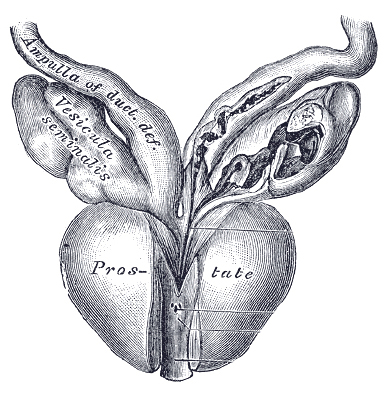ENLARGED PROSTATE
Benign Prostatic Hyperplasia (BPH)
BPH is the most common disorder of the prostate. Urinary symptoms due to BPH are thought to affect over half of men aged over 50. The incidence of BPH increases with age.
BPH is caused by an overgrowth of prostate tissue. These non-cancerous changes are due to:
- An increase in the number and size of prostate cells
As the prostate enlarges, it obstructs the urethra, which reduces the flow of urine from the bladder.

ADDITIONAL INFORMATION
- A weak urine stream
- Hesitancy (urine stopping and starting)
- Straining to urinate
- Taking a long time to urinate
- Incomplete emptying of the bladder
- Urgency – feeling the need to urinate urgently
- Frequency – having to urinate frequently
- Nocturia – having to get up at night to urinate
These symptoms are collectively referred to as lower urinary tract symptoms (LUTS).
- Overactive bladder syndrome (OAB)
- Urinary tract infections (UTIs)
- Problems with bladder function
- Parkinson’s disease
- Physical examination – A digital rectal examination (DRE): This examination is performed to assess prostate disease. Your doctor will pass a gloved, lubricated finger into the rectum to examine the prostate. The DRE will allow your doctor to assess whether the prostate: feels enlarged, is tender, is smooth or knobbly
- Urine test: Your doctor will take a urine sample to check for signs of infection or blood. This will help rule out urinary tract infection.
- Blood tests: Occasionally, BPH can cause kidney problems; therefore, your doctor may order a blood sample be taken to check your creatinine level. Your blood sugar levels may also be tested as diabetes can be a cause of frequent urination. Your doctor will also check your Prostate Specific Antigen (PSA) level. PSA is a protein found in the bloodstream that can indicate prostate cancer or prostatitis, but can also be affected by BPH. The larger your prostate, the higher your PSA level tends to be. If the PSA level is raised, your doctor may recommend that you have a biopsy.
- Ultrasound scan: An ultrasound scan of your kidneys and bladder may be recommended if your doctor is concerned that you are not completely emptying your bladder.
Depending on the outcome of the tests already described, your doctor may perform more tests. These include:
- Urodynamic measurements: A catheter is inserted through your penis/urethra into the urethra and up into the bladder. The pressure inside the bladder is measured so your doctor can decide whether your symptoms are due to obstruction from BPH or are caused by the bladder not working properly. The catheter is then removed.
- Transrectal ultrasonography (TRUS): Ultrasound is used to create an image of the prostate to measure its size.
- You can find more information regarding treatments here:
- Drug treatment
- Transurethral resection of the prostate (TURP)
- Transurethral incision of the prostate (TUIP)
This may be recommended by your urologist if your symptoms are mild or you are not too troubled by them. You will need to make minor changes to your lifestyle such as avoiding having large amounts of fluid in the evening and avoiding tea, coffee and alcohol.
At regular intervals, usually yearly, you will have a physical examination, blood and urine tests.

